Thank you, Lodz Zoo!
Discover below a visual summary of an inspiring EAZA Annual Conference, hosted by Łódź Zoo from 9 to 13 September 2025.
Oops we did it again...
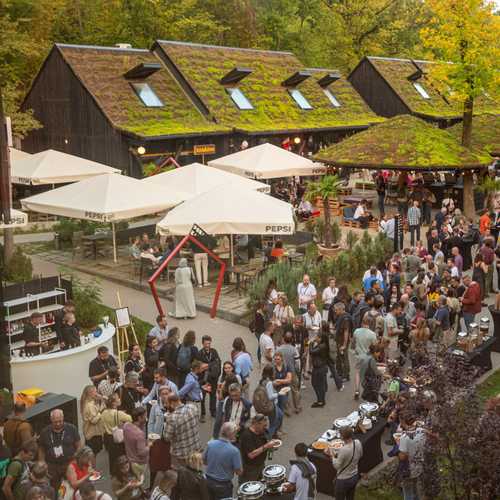
... Another EAZA Annual Conference, another success! Over five intense days, 1,008 delegates from 54 countries and 382 institutions gathered in Łódź (Poland) for the EAZA Annual Conference 2025.
During 120+ meetings and many social times, they shared expertise, celebrated successes, and charted new paths for species conservation.
The photos and video captured during the event provide a vivid window into the energy, commitment, and optimism that defines our community.
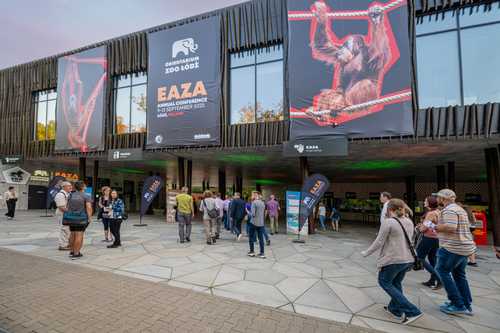
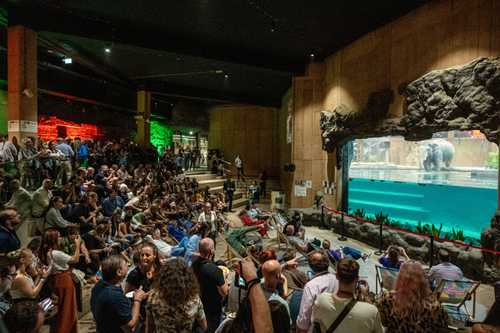
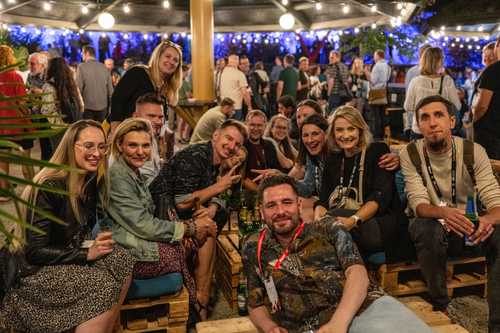
After an EAZA Academy course on animal training in the morning and a first meeting for TAG Chairs and EEP Coordinators in the afternoon, the icebreaker held outside the famous Orientarium kicked off the festivities.
With a relaxed atmosphere, good food and lovely people, it was the perfect start to a busy week.
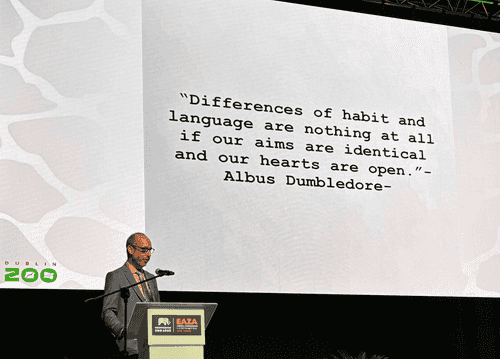
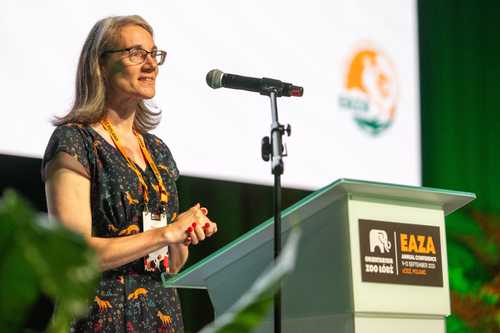
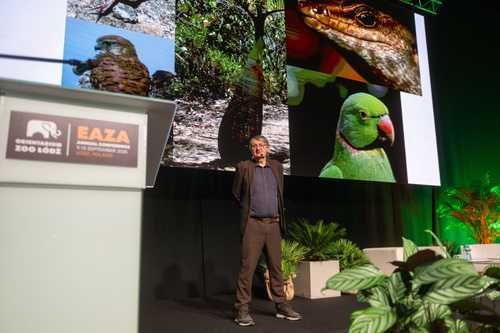
On Wednesday 10 September, Christoph Schwitzer, CEO of Dublin Zoo and new EAZA Chair, officially opened the conference, introducing himself and the challenges that our community faces ahead of the next EAZA strategy. With a quote from Dumbledore, he reminded us that collaboration is the only way to succeed in our common goals.
After Adam Pustelnik, First Vice-President of the City of Łódź, underscored how zoos can inspire urban communities and act as centers of education and sustainability, Łódź Zoo Director of Development Michał Gołędowski presented the zoo’s recent transformation into a leader in conservation, research, and education. From revamped enclosures to new veterinary facilities, this institution now stands as a model for modern zoo practice.
EAZA Executive Director Myfanwy Griffith highlighted achievements from the past year before turning attention toward future projects and encouraging the delegates to take part in the various roles available in our Committees and TAGs.
Keynote speaker Carl Jones, Chief Scientist at Durrell Wildlife Conservation Trust, reflected on the extraordinary influence of Gerald Durrell’s vision, which turned a small zoo on Jersey Island into a pioneering force for species recovery. He reminded the audience that more than 10 species would not have survived without their efforts – in collaboration with many partners - and that conservation requires both scientific expertise and long-term commitment.
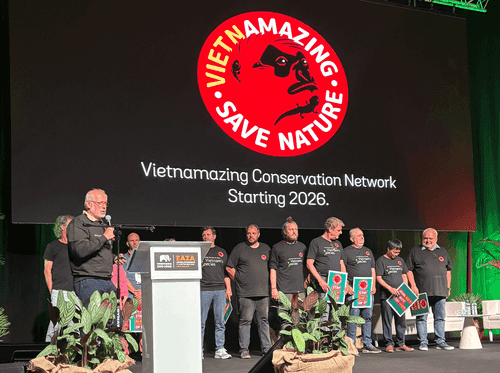
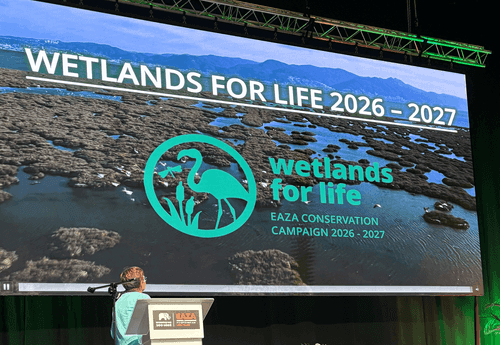
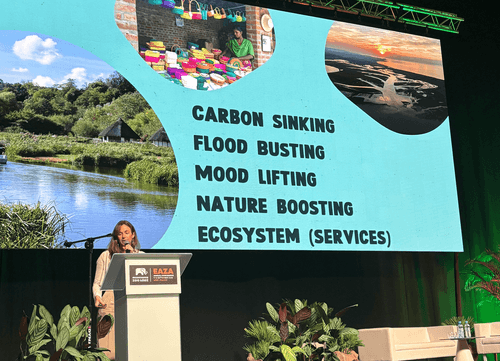
In the afternoon, the EAZA Conservation campaigns were in the spotlight. The Vietnamazing team presented the great results achieved during the campaign, including €500,000 collected, 168 participating institutions and 1 frog species discovery. Despite the campaign officially closing at the end of 2025, the work will continue through the new Vietnamazing Conservation Network.
The second half of the plenary was dedicated to Wetlands – the focus of the next EAZA campaign and an essential component supporting 40% of the world’s biodiversity. Members of the Wetlands for Life team explained why and how zoos and aquariums can get involved in the campaign. Keynote speaker Alex Hughes from Wildfowl and Wetlands Trust then emphasized how storytelling can make conservation campaigns resonate with wider audiences, turning challenges into compelling narratives that move people to act.
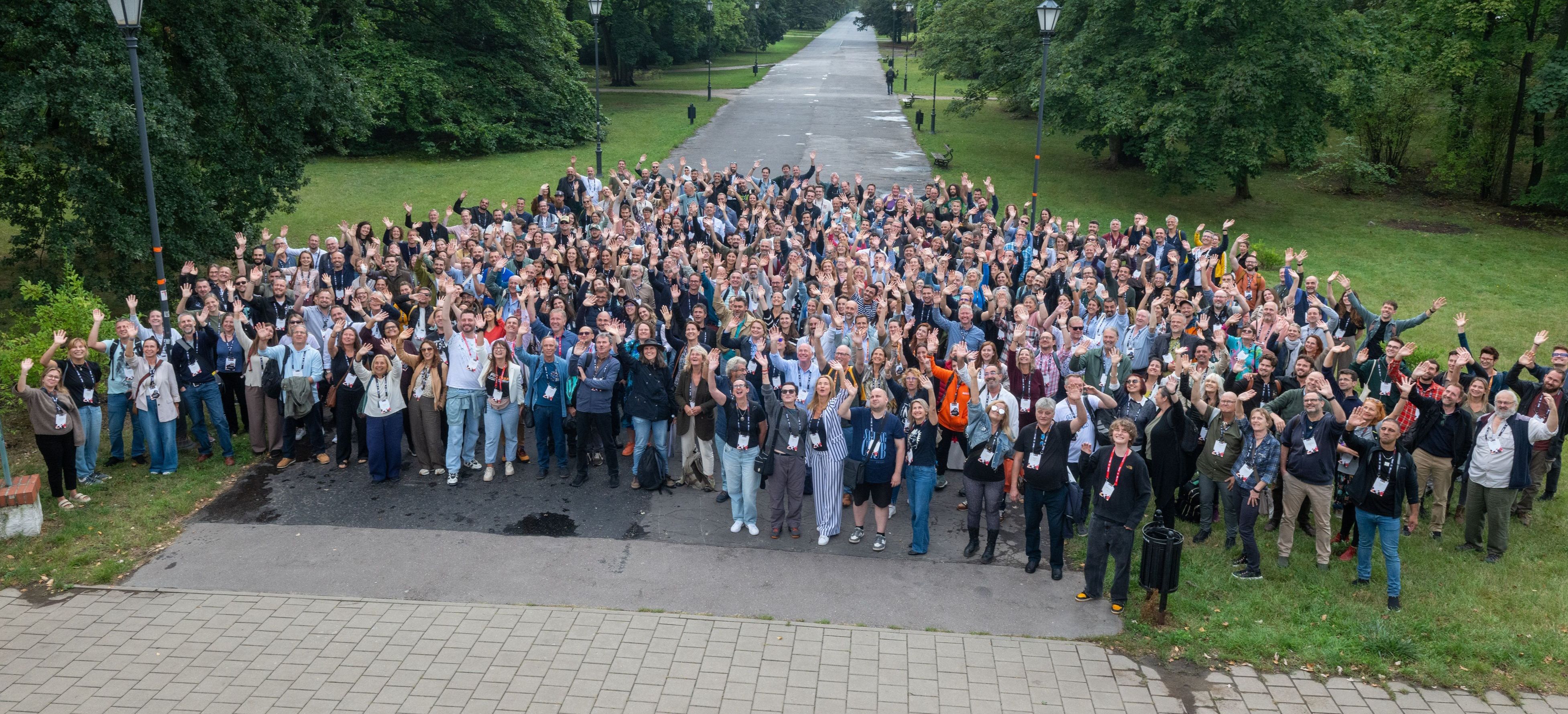
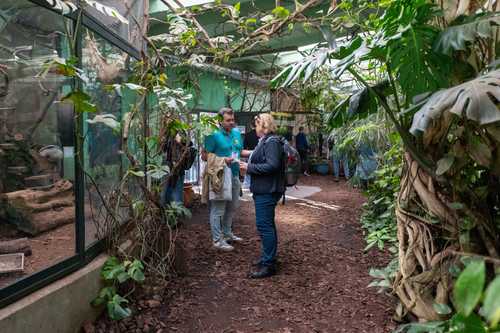
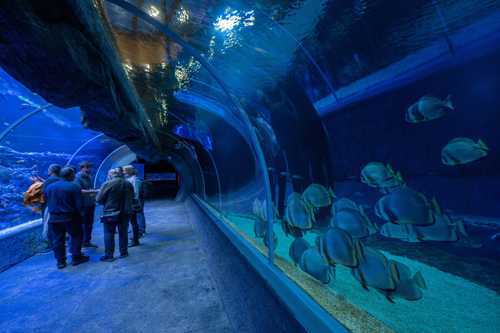
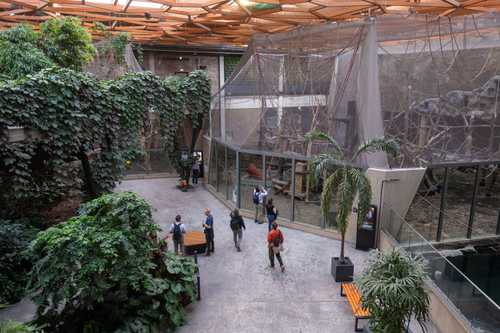
Thursday was packed with specialised sessions and workshops focusing on topics as varied as conservation education, animal training, species programme updates or zoo legislation. After interesting discussions and presentations, participants gathered for a group photo before enjoying the visit of Łódź Zoo.
Each year the photographer needs to climb higher to fit an increasingly bigger group of happy people in one shot. That's when a drone comes in handy!
The Rewilding plenary tackled one of the most ambitious challenges in conservation: restoring species and ecosystems in the wild. We may not all agree on its definition, but all the speakers were unanimous: EAZA zoos and aquariums have the expertise and the responsibility to act now!
Radosław Ratajszczak (Poznan Zoo) outlined the history of European rewilding, while Gerardo García (Chester Zoo) highlighted the wealth of opportunities - aligned with the IUCN guidelines – available to us to support species across all taxa. Daniel Klich (European Bison Conservation Friends Society and Warsaw University of Life Science) emphasized the continued importance of managing European bison populations even after successful reintroductions. Barbora Dobiášová (Prague Zoo) shared ongoing strategies for the Przewalski’s horse recovery, rescued from extinction but still under pressure from hybridization and climate change. Tim Schikora (Schwerin Zoo) reported on the giant otter reintroduction in Argentina, relying on years of collaborative ex situ work - breeding, research, and careful planning. Finally, Andrew Tilker from Re:wild reminded us that restoring ecosystems requires addressing all components, from protected areas to coordinated standards.
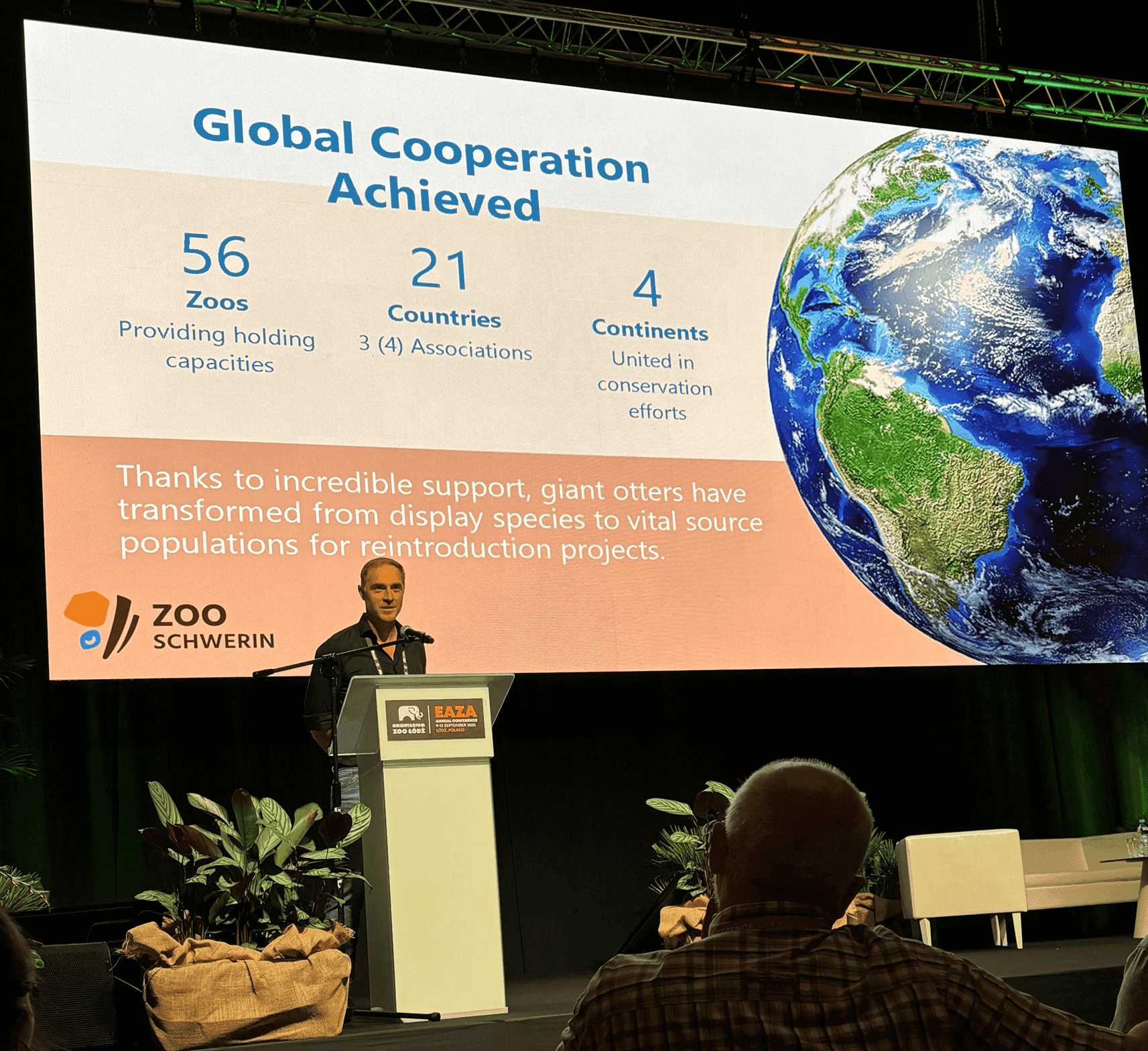
On Saturday, the Exhibit Design Plenary focused on innovative habitats for big and tiny species.
Mark Pilgrim (Werribee Open Range Zoo) explained the philosophy behind their expansive new 21-hectare elephant habitat, which aims to replicate natural behaviour while offering immersive visitor experiences. Anaïs Tritto (Mandai Nature) presented the Bird Paradise project, showing how careful use of natural landscapes can shape exhibits that feel organic and educational. Jakub Kordas (Wroclaw Zoo) emphasized storytelling as a central design tool, urging the shift from static “fish in glass” displays to immersive learning environments. Beatriz Domínguez described how Oceanogràfic Valencia transformed artificial ponds into “living lakes,��” enhancing conservation value and community engagement. Fabian Schmidt showcased the dwarf tortoise breeding station at Basel Zoo where visitors directly observe conservation in action. Using the example of Aralandia, Arne Lawrenz (Wuppertal Zoo) reasserted the session’s overall message: thoughtful exhibit design plays a vital role in impactful conservation, innovative research and public awareness.
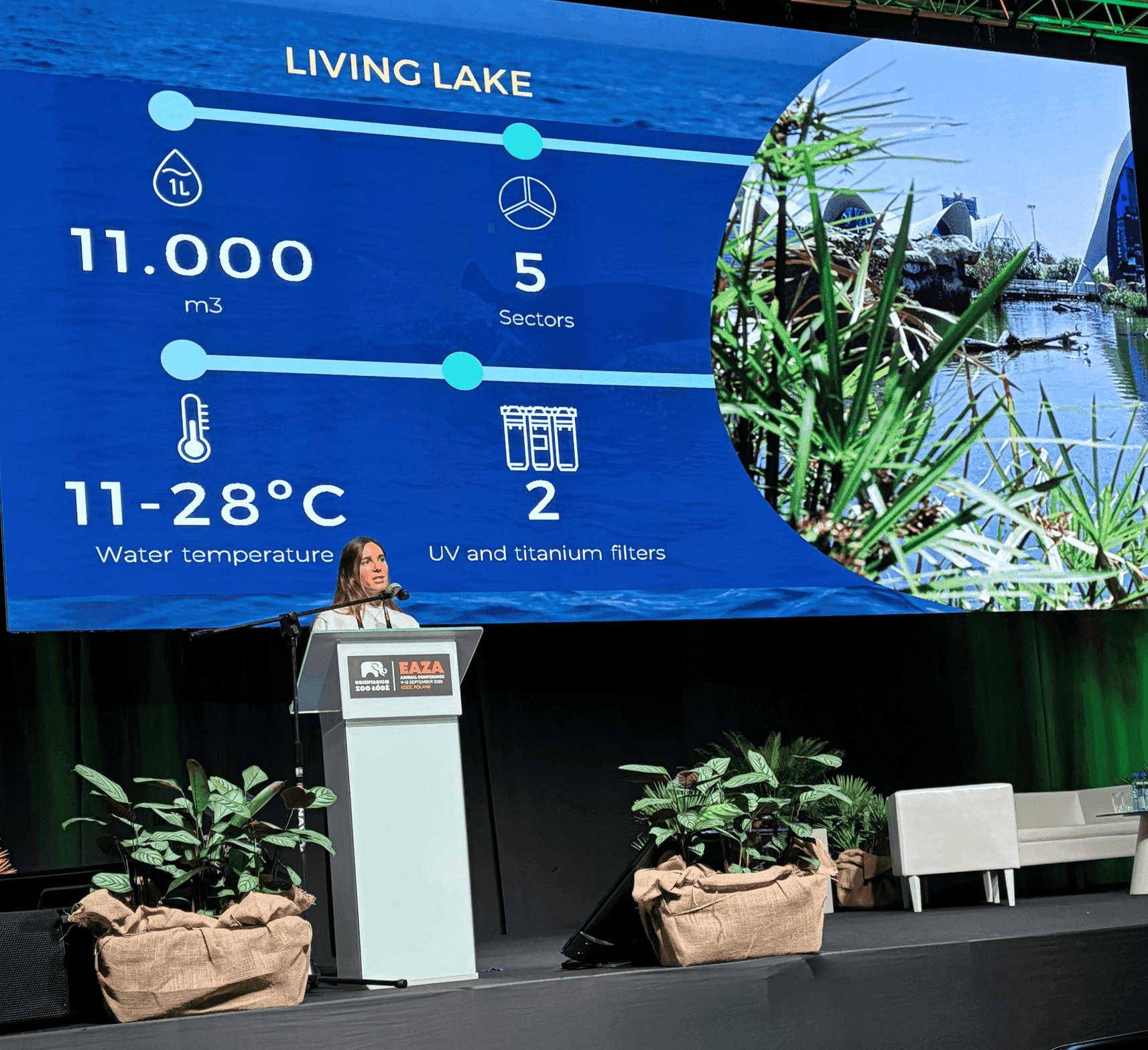
Before hitting the dance floor at the gala dinner, we concluded an inspiring week by honoring key figures whose legacy will continue to inspire us for many years. For the 2025 edition, Christoph Schwitzer handed over four Lifetime Achievement Awards!
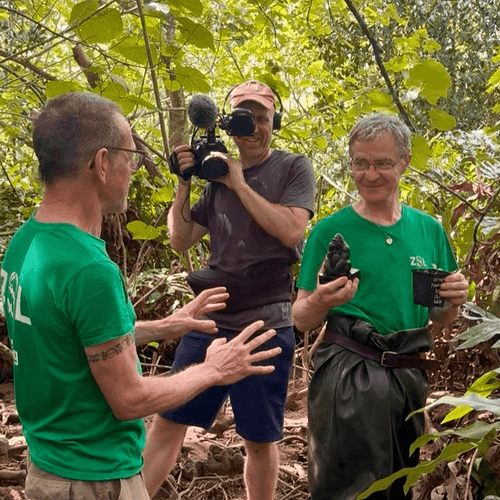
Congratulations Paul Pearce-Kelly (ZSL)!
Senior Curator of Invertebrates and Fish at Zoological Society of London, Paul is an ambassador for zoos and aquariums, and for the recovery of threatened species through conservation breeding.
His commitment to invertebrate conservation has helped save species from extinction. He is a global leader in this field working with numerous IUCN Specialist Groups and inspiring the next generation of conservationists through the engaging invertebrate exhibits he designed.
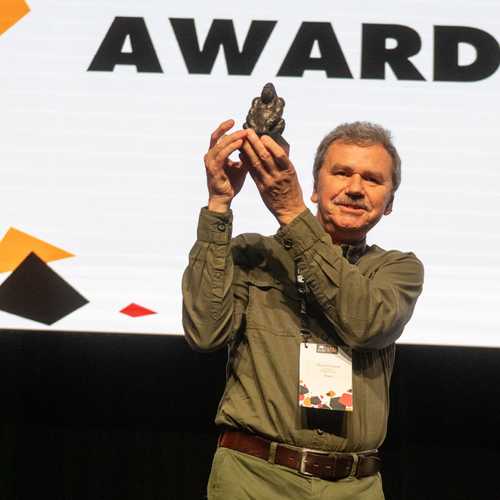
Congratulations Ryszard Topola (Łódź Zoo)!
Director of Łódź Zoo, curator of birds, zoological manager at Warsaw then Zamosc Zoos, Ryszard has dedicated more than 45 years of his life to Polish zoos, for which he also created and edited the Polish Zoo and Aquarium Yearbook all these years. Understanding the value of working together across borders, he was a member of the EAZA Council from 1998 to 2009 and EAZA’s Treasurer from 2005-2009.
Though retired since 2021, Ryszard continues to provide his expertise for the EEP coordination and monitoring of many bird species.
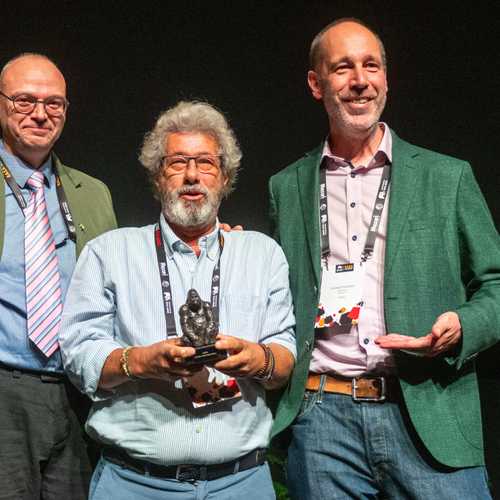
Congratulations Eric Bairrão Ruivo (Beauval Zoo)!
Science and Conservation Director at Beauval Zoo, Eric Bairrão Ruivo has always been a big believer in EAZA values. He’s held numerous EAZA roles over the years from EEP coordinator and Callitrichid TAG Chair to Conservation Committee Chair or EAZA Secretary.
Eric was a driving force behind the development of the first EAZA Conservation Standards as well as the development of the our Conservation Campaign structure. He’s also an active accreditation screener and a fierce advocate for EAZA Standards.
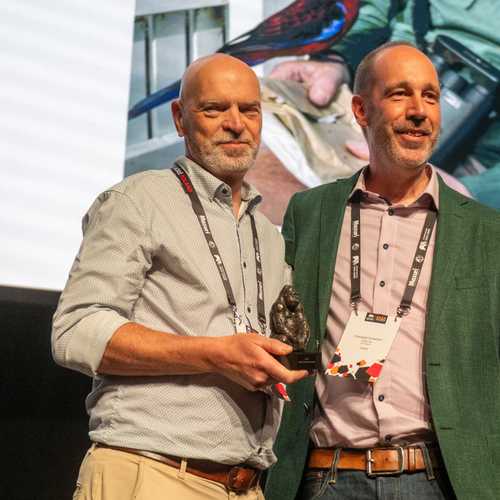
Congratulations Mark Pilgrim (Werribee Open Range Zoo)!
Currently Director at Werribee Open Range Zoo in Australia, Mark Pilgrim is no stranger to the EAZA community. During his 33 years at Chester Zoo - where he arrived as a bird keeper in 1988 and left as CEO in 2021 - Mark has occupied many key EAZA roles, including Council member, EEP Committee Chair, Technical Assistance Chair, and latterly Vice Chair of EAZA.
He was instrumental in the development of the MoU that resulted in the successful translocation of Eastern black rhinos from the EAZA Ex situ Programme to Rwanda.
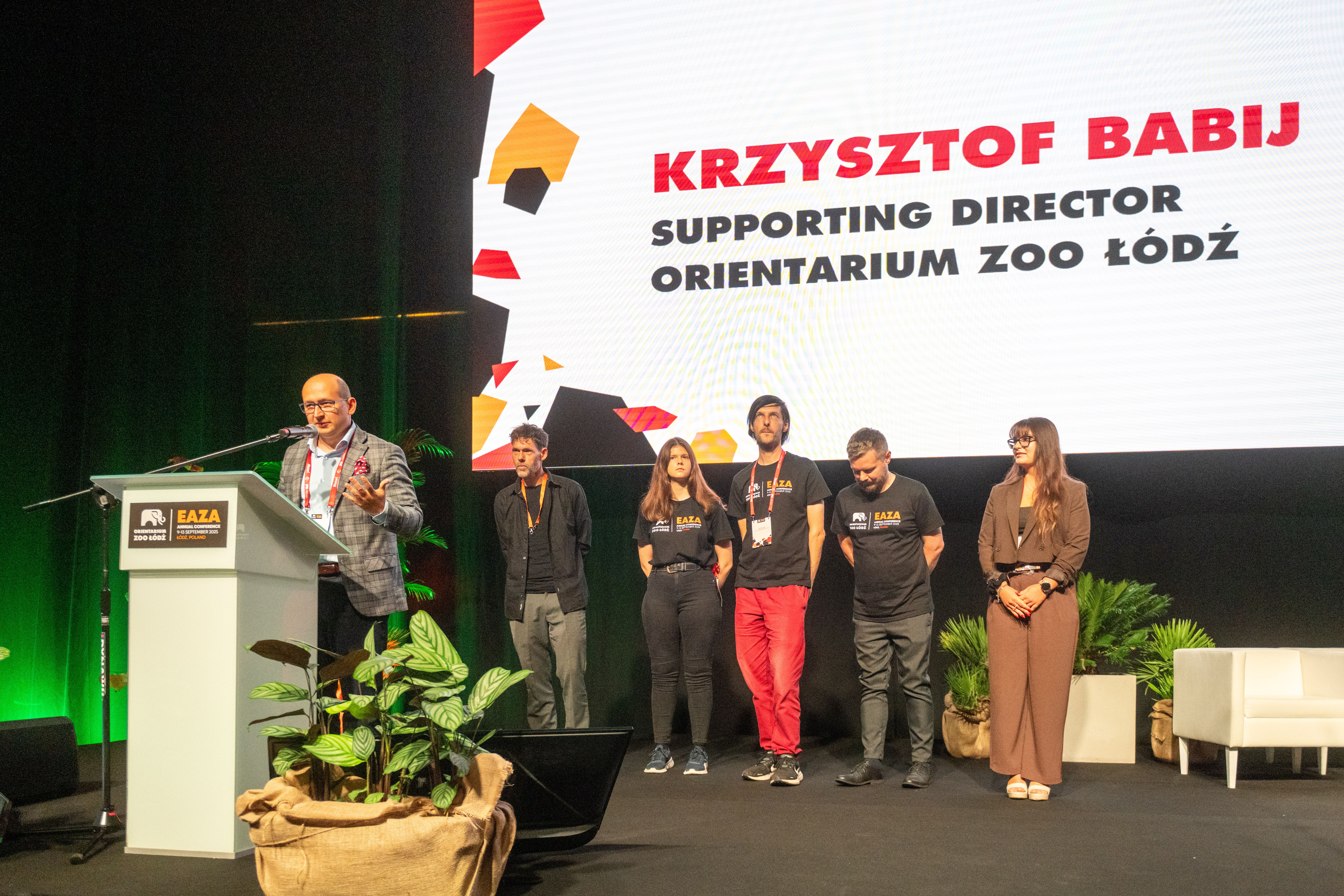
Echoing the feedback from participants, we would like to thank again the organising team from Łódź Zoo, the Double Tree Hilton and the PCO for their kindness, efficiency and for hosting an amazing event!
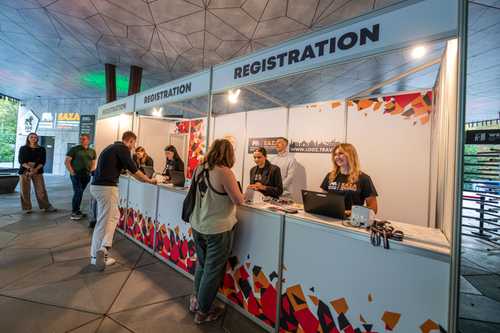
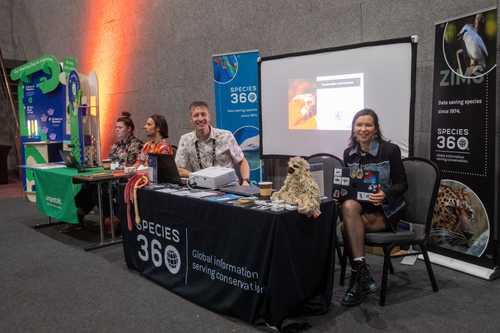
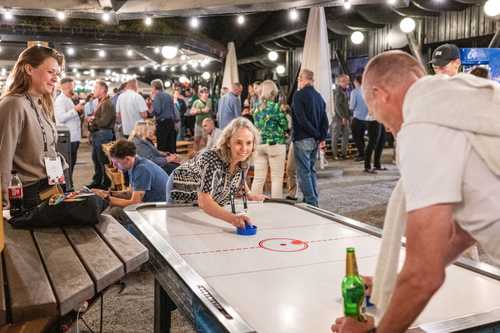
A big shout out as well to the exhibitors, the sponsors and the caterers who provided delicious food and beverages, filling our bellies and fueling our brains in-between sessions.
We can't wait to see you in Paris Zoo for the next edition on 29 September - 3 October!
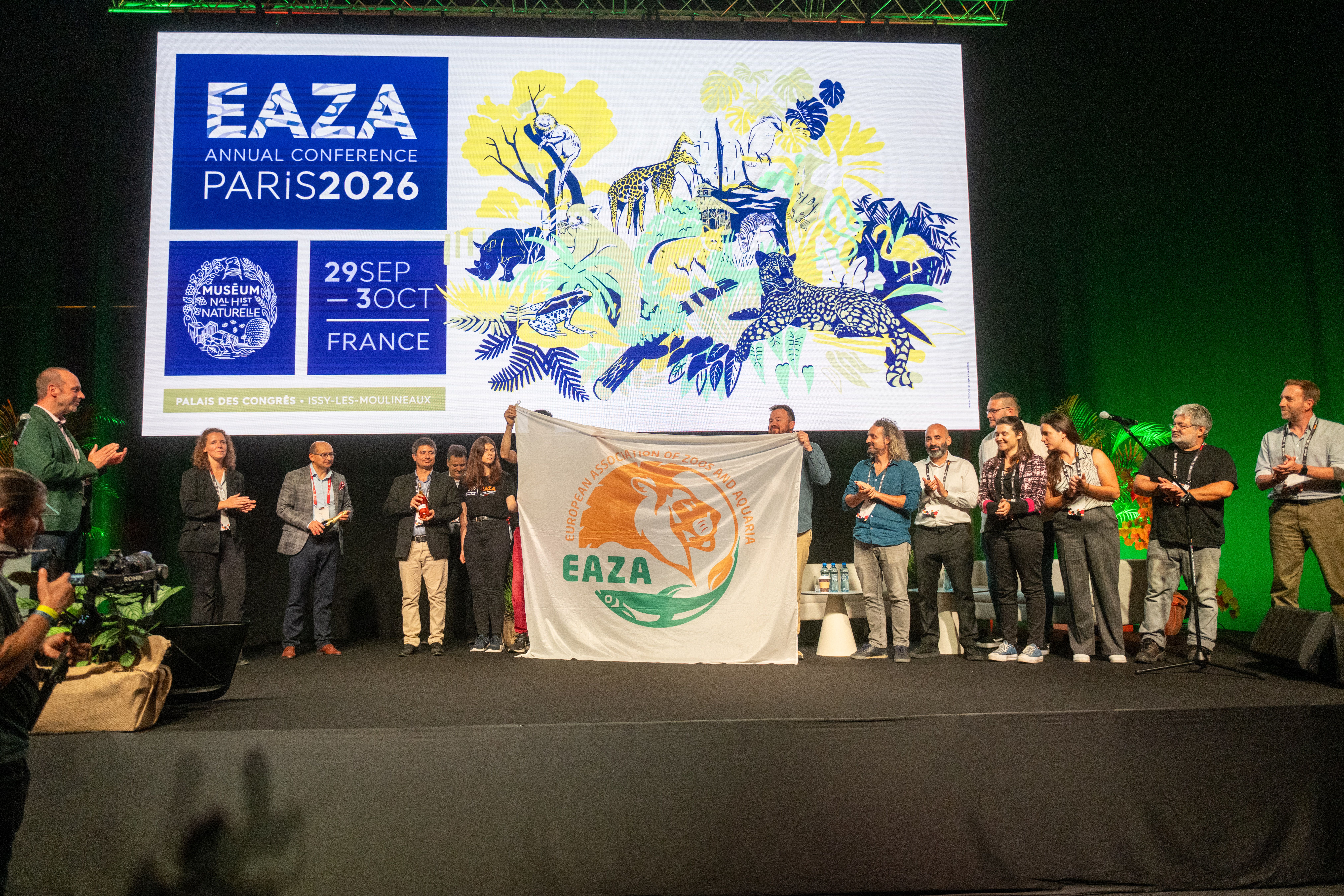
Pictures on this page © Paweł Łacheta, Łódź Zoo or Sandrine Camus, EAZA
Blog post by Sandrine Camus, 26 September 2025
